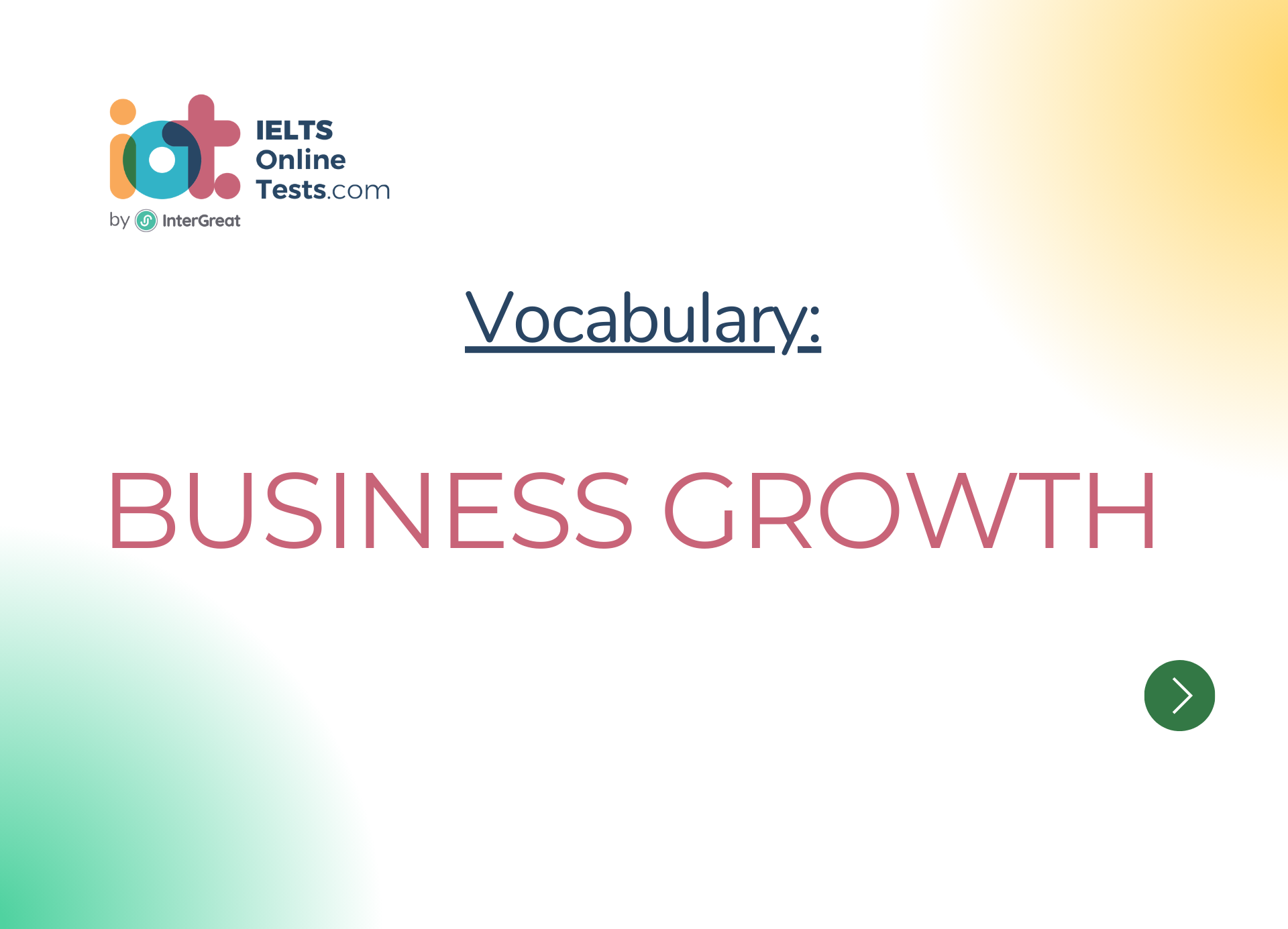
Business growth
Here's a detailed list of vocabulary related to business growth for the IELTS band score 4.5-6.0:
Expansion:
The act of increasing the size, scale, or scope of a business.
Diversification:
Adding new products, services, or markets to the existing business.
Market Penetration:
Increasing market share in existing markets.
Market Development:
Entering new markets with existing products or services.
Product Development:
Creating new products or improving existing ones.
Market Share:
The portion of the total market that a company controls.
Customer Base:
The group of customers who regularly buy from a company.
Brand Awareness:
The extent to which consumers recognize and remember a brand.
Brand Loyalty:
The commitment of customers to consistently choose a specific brand.
Customer Retention:
The ability to keep existing customers and maintain their loyalty.
Customer Acquisition:
The process of gaining new customers.
Sales Growth:
Increasing revenue and sales over time.
Revenue Stream:
Different sources of income for a business.
Profitability:
The ability of a business to generate profits.
Return on Investment (ROI):
The ratio of profit or loss to the investment cost.
Scalability:
The capability of a business to grow without being hindered by its structure.
Competitive Advantage:
Unique qualities that set a business apart from its competitors.
Strategic Alliances:
Collaborations with other businesses to achieve mutual benefits.
Merger:
Combining two or more companies into a single entity.
Acquisition:
Purchasing another company to expand operations.
Franchising:
Granting the rights to use a company's brand and business model to others.
Joint Venture:
A business arrangement where two or more parties share resources and risks.
Strategic Planning:
Long-term planning to achieve business objectives.
Organic Growth:
Gradual and natural growth through internal efforts.
Inorganic Growth:
Growth achieved through mergers, acquisitions, or partnerships.
Market Saturation:
When a market is no longer able to absorb additional products or services.
Economies of Scale:
Cost advantages gained by producing on a larger scale.
Sustainable Growth:
Growth that can be maintained over the long term.
Market Segmentation:
Dividing a market into distinct groups based on characteristics.
Target Audience:
Specific group of customers that a business aims to reach.
Distribution Expansion:
Increasing the reach and availability of products.
Global Expansion:
Entering international markets to reach a broader audience.
Brand Extension:
Launching new products under an existing brand.
Innovation:
Introducing new ideas, methods, or products.
Outsourcing:
Hiring external companies to perform certain tasks or services.
Investment:
Allocating funds for business growth and development.
Cash Flow:
The movement of money in and out of a business.
Business Model:
The strategy a company uses to create value and generate revenue.
Leverage:
Using borrowed capital to finance business activities.
ROI (Return on Investment):
The ratio of profit or loss to the investment cost.
Remember to practice using these words in context to enhance your understanding and fluency. Best of luck with your IELTS preparation!




